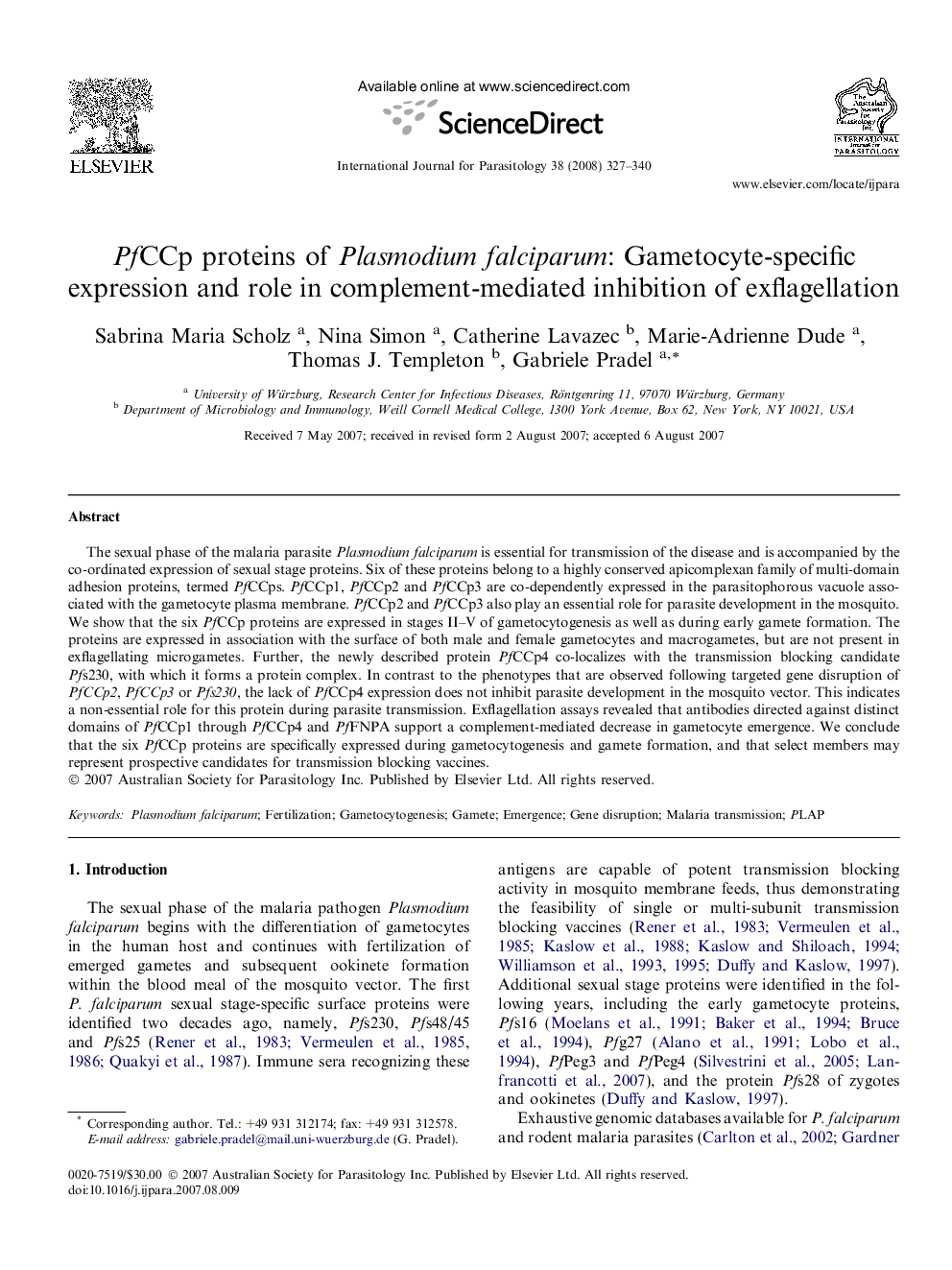| Article ID | Journal | Published Year | Pages | File Type |
|---|---|---|---|---|
| 8500335 | International Journal for Parasitology | 2008 | 14 Pages |
Abstract
The sexual phase of the malaria parasite Plasmodium falciparum is essential for transmission of the disease and is accompanied by the co-ordinated expression of sexual stage proteins. Six of these proteins belong to a highly conserved apicomplexan family of multi-domain adhesion proteins, termed PfCCps. PfCCp1, PfCCp2 and PfCCp3 are co-dependently expressed in the parasitophorous vacuole associated with the gametocyte plasma membrane. PfCCp2 and PfCCp3 also play an essential role for parasite development in the mosquito. We show that the six PfCCp proteins are expressed in stages II-V of gametocytogenesis as well as during early gamete formation. The proteins are expressed in association with the surface of both male and female gametocytes and macrogametes, but are not present in exflagellating microgametes. Further, the newly described protein PfCCp4 co-localizes with the transmission blocking candidate Pfs230, with which it forms a protein complex. In contrast to the phenotypes that are observed following targeted gene disruption of PfCCp2, PfCCp3 or Pfs230, the lack of PfCCp4 expression does not inhibit parasite development in the mosquito vector. This indicates a non-essential role for this protein during parasite transmission. Exflagellation assays revealed that antibodies directed against distinct domains of PfCCp1 through PfCCp4 and PfFNPA support a complement-mediated decrease in gametocyte emergence. We conclude that the six PfCCp proteins are specifically expressed during gametocytogenesis and gamete formation, and that select members may represent prospective candidates for transmission blocking vaccines.
Keywords
Related Topics
Life Sciences
Immunology and Microbiology
Parasitology
Authors
Sabrina Maria Scholz, Nina Simon, Catherine Lavazec, Marie-Adrienne Dude, Thomas J. Templeton, Gabriele Pradel,
